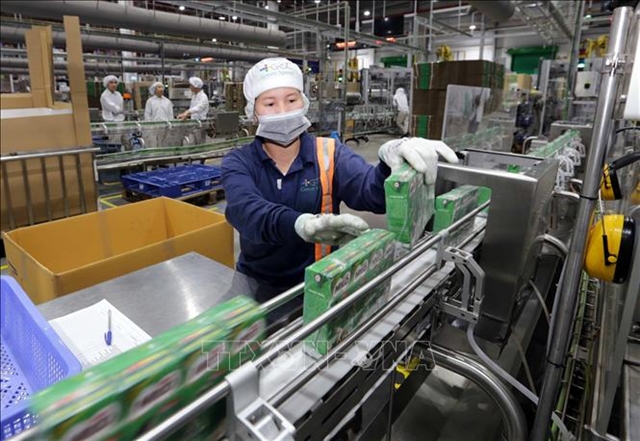 Economy
Economy
.jpg)

|
| Workers at a factory owned by Nestlé Vietnam in southern Đồng Nai Province. — VNA Photo |
HÀ NỘI — The World Bank (WB) on Tuesday said the East Asia and Pacific region’s recovery had been hampered by the spread of the COVID-19 Delta variant, prolonging the distress for firms and households, likely slowing economic growth and increasing inequality in its October 2021 East Asia and Pacific Economic Update Briefing.
“While China’s economy is projected to expand by 8.5 per cent, the rest of the region is forecast to grow at 2.5 per cent, nearly two percentage points less than forecast in April," said the WB. "Employment rates and labour force participation have dropped, and as many as 24 million people will not be able to escape poverty."
While the region managed to contain the virus last year as other parts of the world struggled, the rise in cases since then had decreased growth prospects for this year, according to WB East Asia and Pacific vice-president Manuela Ferro.
Ferro, however, showed confidence in the region's ability to emerge stronger from the crisis with the right policies as it has done so in the past.
WB East Asia and Pacific chief economist Aaditya Mattoo said accelerated vaccination and testing could revive economic activity in struggling countries as early as the first half of next year, and double their growth rate next year.
He noted that in the longer term, only deeper reforms would prevent slower growth and increasing inequality, an impoverished combination the region has not seen this century.
The World Ban has lowered its prediction of Việt Nam's GDP growth to 4.8 per cent in 2021, two percentage points less than the projection made by the World Bank Group in December 2020, which accounts for the negative impacts of the Delta variant on economic activity.
However, FDI flow into Việt Nam has remained stable, showing confidence by foreign investors in the country's ability to resist and bounce back. Việt Nam's GDP for 2020 managed to report a positive 2.9 per cent growth while most economies experienced setbacks and contractions, according to Dorsati Madani, Senior Country Economist in Việt Nam.
Madani said there were signs showing foreign investors still have confidence in the economy. A major global food brand has announced they were to invest $180 million in Việt Nam as they viewed the economy as one with a lot of room for growth. — VNS